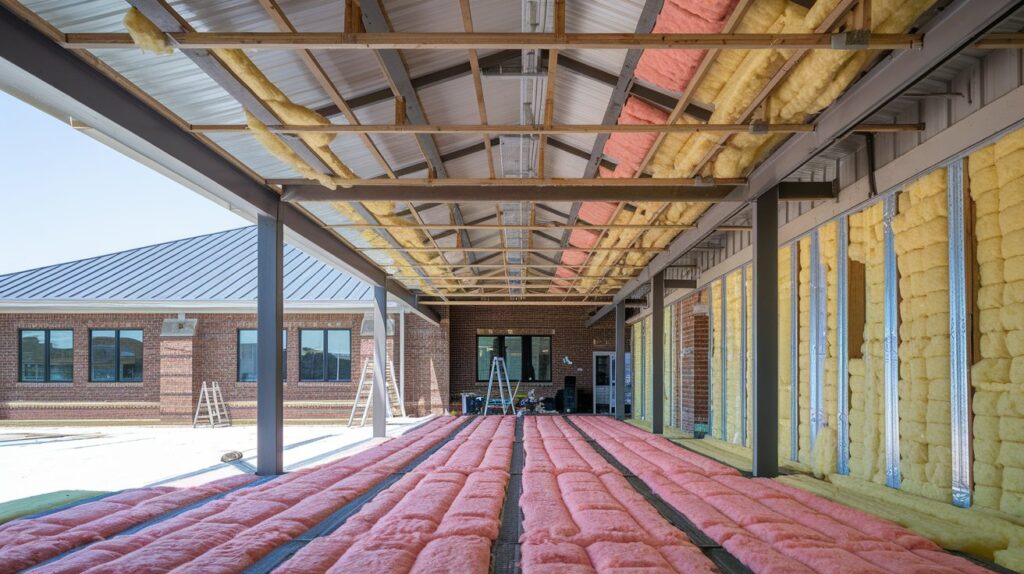Commercial buildings are vastly different from their residential counterparts. Where the latter tend to be designed for comfort, commercial properties are made to prioritize performance and utility. However, what the two definitely share is insulation. Whether it’s a residential or commercial property, insulation plays a significant role.
In residential properties, acoustic insulation is all about maintaining peace by blocking unwanted noise. However, for commercial buildings, it goes beyond that, contributing to establishing favorable conditions for work and saving money on energy costs. This is why insulation is a must for commercial property owners, and it should be done with the help of experts like West County Insulation, who specialize in simplifying the complexities of insulation installation.
Key Reasons Why Commercial Property Insulation is Required
Recent building energy codes increasingly emphasize greater energy efficiency in commercial properties, leading to demands for tighter and better insulation. However, simply meeting these legal minimum standards does not provide excellent customer value. Designing beyond these codes-including quality insulation installations-delivers commercial properties that are more energy efficient, healthier, and quieter, and ultimately have a competitive advantage.
1. Higher Energy Efficiency Means Lower Energy Bills
Insulation for energy efficiency is an obvious benefit that most commercial property owners will be concerned about. Yes, insulating commercial spaces means spending some money up front, especially for installation, but that’s a worthwhile investment as it saves money on energy bills for many years to come.
Insulated buildings are easier to keep warm and cool, meaning they consume less energy throughout the year. From a business perspective, this is highly lucrative as it significantly reduces expenses, which is always welcome to improve the bottom line.
2. Aligning with New Energy Efficiency Regimes
Commercial property insulation is also required to comply with evolving energy efficiency regulations. For instance, commercial and multifamily energy benchmarking is becoming increasingly common for metro cities. This typically means that existing properties must report on their annual energy use and secure a score from 0 to 100 based on the consumption numbers.
These scores are often made public and are becoming essential for real estate transactions, influencing prospective buyers and tenants. As energy efficiency numbers gain prominence in building transactions, commercial property owners must capitalize on this trend to exceed codes and distinguish themselves from competitors.
3. Ensuring Workplace Comfort
If your commercial property is a workplace with employees, ensuring their comfort all year round should be a major reason for installing acoustic insulation. Employees can be more productive if they can fully focus on their tasks, and that’s achievable with a comfortable workplace. When you consider the potential increase in your team’s productivity, installing insulation will seem like a minor expense. This thermal comfort is also related to energy consumption-without thorough insulation and air sealing, heat will move to cold areas, meaning workers will use more energy to be comfortable, and your bills will be higher.
Thermal comfort also applies to commercial properties that are retail spaces. You want your customers to be comfortable as they browse your products or services, so they stay around longer and come back again. Insulation facilitates this, and, although a minor detail, should never be overlooked.
4. Better Acoustics
This may not sound too logical, but insulation improves how your space sounds. A commercial building without proper insulation would often sound hollow, even having a significant echo in some cases. These don’t make for a conducive environment to shop or work in, so your building may not perform as well as you want it to.
Simply adding insulation from the start would have helped here, and the cost-benefit comparison will help you determine the right choice. Given the modest expenses of insulation installation and the various benefits it offers, neglecting this step would be a bad decision.
Wrapping Up
Building commercial properties involves many moving parts, from sourcing permits to planning the construction. Amidst all this, it might be easy to forget about insulation, and as already evident, that would be a major disadvantage. Hence, it’s advisable to plan for insulation well ahead, partnering with the right experts to install the insulation best-suited for your property and its purposes.

